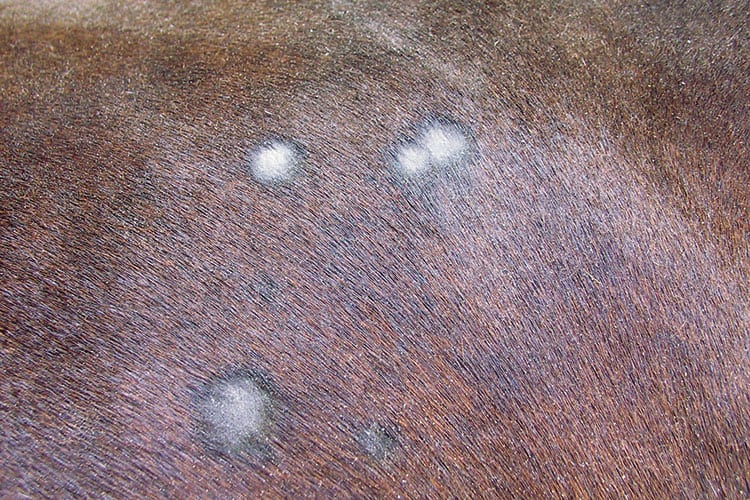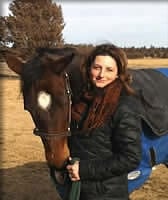Can I Give My Horses Ringworm?

A. Ringworm infections aren’t actually caused by worms, despite the misleading name, but by various species of fungus. Horses, humans, dogs, and cats can all contract ringworm infections. In humans, specific types of ringworm fungi also cause the conditions commonly known as jock itch and athlete’s foot. Ringworm is zoonotic, meaning humans can contract it from contact with animals and vice versa. They can also contract it from the soil—because infectious spores can exist there, as well—and fomites (objects, such as clothing, that can transmit the infection).
There are several species of ringworm fungi. Dog and cat ringworm infections are usually due to Microsporum gypseum, Microsporum canis, or Trichophyton species. Human ringworm infections are usually due to Trichophyton, Microsporum, or Epidermophyton species. Horse ringworm is typically caused by Trichophyton, Microsporum gypseum, or Microsporum equinum.
As you can see, there is some overlap in ringworm species among animal species, so it’s possible for ringworm infections to be transmitted from cat to human to horse, for example
Create a free account with TheHorse.com to view this content.
TheHorse.com is home to thousands of free articles about horse health care. In order to access some of our exclusive free content, you must be signed into TheHorse.com.
Start your free account today!
Already have an account?
and continue reading.

Written by:
Wendy Krebs, DVM
Related Articles
Stay on top of the most recent Horse Health news with















